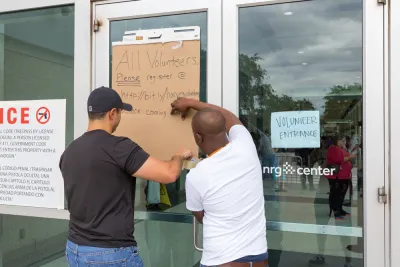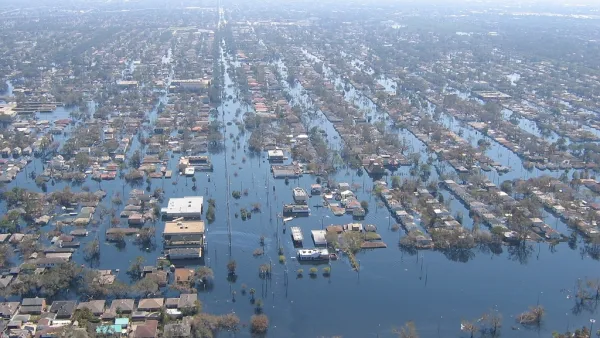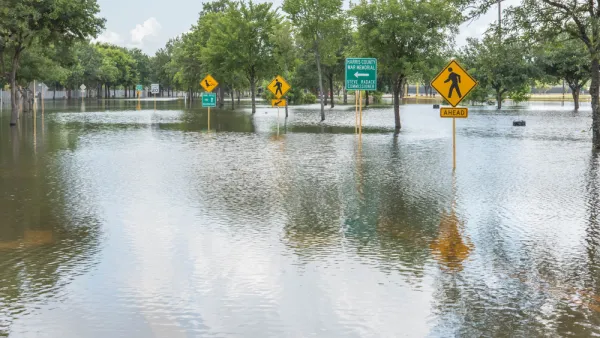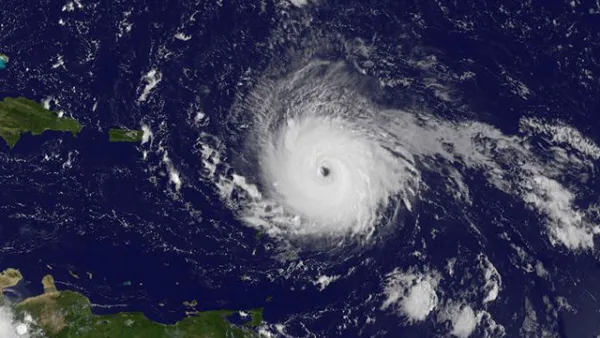Despite the increasing number and intensity of natural disasters, some vulnerable states are relaxing building regulations and leaving the federal government to pick up the tab when tragedy strikes again.

At Bloomberg, Christopher Flavelle considers the cognitive dissonance between how much damage has been caused by natural disasters nationwide over the course of the last several years, and the degree to which building codes have been relaxed in some of the states most affected by them.
"Florida is the clearest example of the trend," he writes. "Until last year, the state’s building codes were viewed as among the best in the nation -- largely a response to Hurricane Andrew."
Then, during the 2017 legislative session, the home builder's lobby pushed a new measure that, though it never made it out of committee, and was strongly opposed even by the real estate lobby, was signed into law by the governor. Now, "[i]nstead of adopting the code council’s updated recommendations every three years," the hurricane-prone state will "incorporate only the changes that the members of the Florida Building Commission deemed to meet the 'specific needs of the state.'"
But Florida is only one example. Louisiana chose not to mandate homes be built above sea level right around the time of the disastrous 2016 floods; South Carolina is currently considering loosening building codes despite the damage from Hurricane Irma, which follows what North Carolina did several years ago. Texas, Mississippi and Alabama have no statewide codes, while Georgia has one, but local governments can choose not to enforce it.
It may or may not be not a coincidence that in some of these states, preparing for climate change has not been a priority, and in at least two of them, it is officially not acknowledged.
This is a problem for the Trump Administration, because the risk incurred by weak building codes ultimately falls on the federal government. Flavelle interviews Craig Fulgate, who led FEMA during the Obama Administration and quotes him at length.
"'The reason states and local governments can get away with crappy homes is because somebody’s always bailing them out,' Fugate said. If FEMA really wants to change states’ behavior, he added, it should change the name of the agency’s spending programs. 'I think we should quit calling them disaster funding' Fugate said, 'and just call them government bailouts.'"
FULL STORY: Bloomberg

Analysis: Cybertruck Fatality Rate Far Exceeds That of Ford Pinto
The Tesla Cybertruck was recalled seven times last year.

National Parks Layoffs Will Cause Communities to Lose Billions
Thousands of essential park workers were laid off this week, just before the busy spring break season.

Retro-silient?: America’s First “Eco-burb,” The Woodlands Turns 50
A master-planned community north of Houston offers lessons on green infrastructure and resilient design, but falls short of its founder’s lofty affordability and walkability goals.

Test News Post 1
This is a summary

Analysis: Cybertruck Fatality Rate Far Exceeds That of Ford Pinto
The Tesla Cybertruck was recalled seven times last year.

Test News Headline 46
Test for the image on the front page.
Urban Design for Planners 1: Software Tools
This six-course series explores essential urban design concepts using open source software and equips planners with the tools they need to participate fully in the urban design process.
Planning for Universal Design
Learn the tools for implementing Universal Design in planning regulations.
EMC Planning Group, Inc.
Planetizen
Planetizen
Mpact (formerly Rail~Volution)
Great Falls Development Authority, Inc.
HUDs Office of Policy Development and Research
NYU Wagner Graduate School of Public Service




























